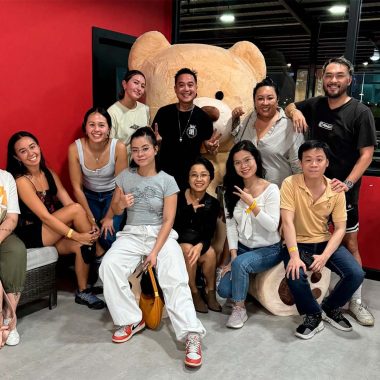Artificial intelligence is transforming how leaders assess, develop, and guide their organizations. One of the leaders shaping this transformation is Tina Shah Paikeday, General Manager of the Leadership Advisory Center of Excellence at Findem.ai, who works with executives to make more precise, evidence-based people decisions supported by data. Building on her background in leadership advisory and DEI, she applies data-driven insights to help executives reduce bias, identify emerging skill needs, and design more inclusive approaches to leadership.
“AI can help us move from fast, unconscious judgments based on heuristics—like where someone went to school—to slower, data-driven evaluations of actual skills,” Paikeday says. “That shift helps leaders make better and more equitable decisions about people.”
From Bias to Data-Informed Decisions
Many of us still rely heavily on gut instinct when assessing talent. While experience and intuition matter, human decision-making is vulnerable to stress, fatigue, and bias. Similarity attraction bias, for example, can lead to promoting those who look or think like us rather than those best equipped for the role.
Paikeday’s research, Slow Thinking Fast: How AI Trumps Human Bias, shows how AI can reduce these risks by focusing attention on the skills that matter most. “The role of the leader is not to abdicate judgment to algorithms,” she says, “but to use AI to surface the right data and then apply human judgment responsibly.”
This interplay of data and human discernment has quickly become central to modern leadership advisory, particularly as regulatory frameworks tighten worldwide. From New York’s Local Law 144 to the European AI Act and California’s new FEHA legislation, organizations are being pushed to ensure that their AI systems do not accelerate bias but instead mitigate it.
Redesigning Organizations and Skills for the Future
The rise of AI will not only change decision-making but also the very structure of organizations, with Paikeday even going so far as to predict org charts that feature both humans and AI agents working side by side. Leadership spans will broaden, with fewer direct reports per executive, thanks to the productivity boost that AI provides.
This shift is already creating what Paikeday calls “super workers”—individuals who combine efficiency and scale through AI tools, multiplying their output beyond what was previously possible. But this transformation is not just about speed. It is about the types of skills leaders and employees must prioritize. Paikeday divides them into three categories:
- Perishable skills, such as specific coding languages, which quickly lose relevance.
- Domain-specific skills, which once had a half-life of five years but are now diminishing more rapidly.
- Durable skills, such as judgment and interpersonal effectiveness, which remain valuable no matter how technology evolves.
“AI will supply much of the knowledge that once defined the ‘knowledge worker,’” she says. “What will matter more is the judgment leaders bring on top of that knowledge, and the human ability to connect with others.”
Balancing Efficiency with Humanity
While the pace of AI adoption has been astonishing—“far faster than the telephone or even electricity,”—it also brings a paradox: technology is making human qualities more critical. “The human-centered approach will become more pronounced as AI accelerates,” she says. “Leaders must know where AI adds value and where humans must take the lead.”
This extends into the C-suite itself. Paikeday highlights the growing convergence of HR and digital leadership roles, sometimes dubbed the “digital HR officer.” Leaders in these positions must manage not only technological transformation but also people at very different points on the AI adoption curve, from fast adopters to skeptics. Guiding all employees along that curve is now part of the strategic leadership agenda.
Preparing for Accelerating Change
Since joining Findem.ai, a growth-equity backed talent intelligence platform, in 2024, Paikeday has witnessed the conversation around AI evolve dramatically. Initially framed as a tool for efficiency, then for effectiveness, AI is now recognized as strategic—reshaping entire organizations and industries.
“The pace of change is just incredible,” she reflects. “What felt like science fiction a few years ago is now very real. Leaders who embrace AI thoughtfully will not just survive but thrive.”
To connect with Tina Shah Paikeday and follow her work on the future of leadership, visit her LinkedIn.








